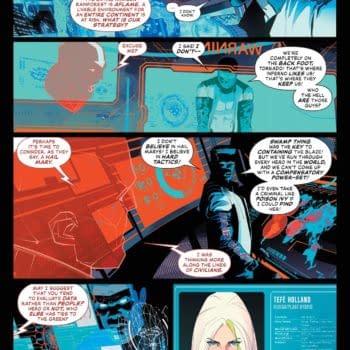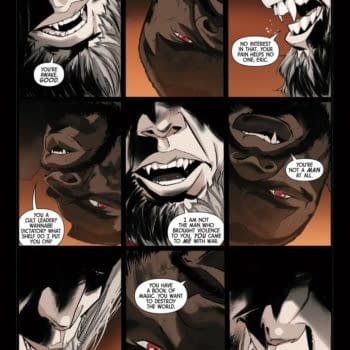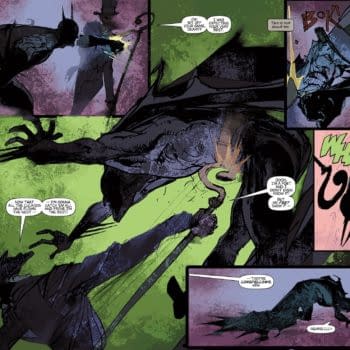Posted in: Comics | Tagged: Comics, dynamite, entertainment, Genevieve Valentine, Julius Gopez, michael uslan, xena
Xena Greek Mythology – A Nice Academic Meta-Narrative And A Hilarious Creative License
Dynamite has sent over a Writer 2 Writer interview where Michael Uslan, writer of Lone Ranger/Green Hornet #3, talks with writer Genevieve Valentine about Xena #6, both on sale now. Photo cover and interior art by Julius Gopez.

GENEVIEVE VALENTINE: I know a little mythology – though of course, the glory and danger of mythology is that it's a narrative warren you can disappear into and never come out of, so you're never really done arguing the nature, translation, and interpretation of any given set of myths. The particular brand of Greek mythology that Xena subscribes to, in which fantasy and reality exist side by side, is both a nice academic meta-narrative and a hilarious creative license.
MU: How much of your story and characterizations are dictated by the TV series and how much latitude do you have creatively to bring new ideas and perspectives to the original literary property?
GV: Xena and Gabrielle's characters were the crux of the show, so their characterization is always the primary concern; without them, it's just a world of Greek and Norse gods arm-wrestling and peasant villages getting their open-air markets beat up every week. Luckily, by this point in the series they've been through so much and are negotiating such fundamental aspects of themselves that it's easy to play on that. Just putting them on different sides of an ethical question will generate ideas and perspectives that push the story.

GV: Thank you! I think what it boils down to is just working to connect cycles of power; the tactics people use to achieve and maintain power change less than we think across millennia, which is depressing, but helps when you'd like to imagine Augustus Caesar. It also helps that Xena had plenty of antagonists who were firm believers in their own rightness; they put Xena and Gabrielle through their paces in more than just battle tactics, and made them confront some truths about the world and themselves. I definitely thought Augustus would have ended up just that sort of ruler: wanting the best, doing what he thinks is necessary.
MU: Clearly, humor plays an important part in your story and characterizations. What are the challenges for working humor into the stories?

MU: How do you make a comic book series like this appeal to readers who may have never seen an episode of the Xena television series?
GV: I think I got something of a pass, given that it's Xena. By now we're at a level of cultural saturation that even someone who's never seen the series knows Xena herself, and the overall tone and approach; by the time someone's appeared on The Simpsons you can relax a bit in terms of name recognition. That said, I definitely jumped into a moment in the show continuity that only established fans would probably have seen. The early sixth season, after the Twilight of the Gods, is such an amazing storytelling point with a lot of points to sneak in some secret history, but at the same time, half the Greek pantheon is dead, Xena and Gabrielle just woke up from a 25-year enchanted sleep, and the kid who'd helped them out once is now Augustus Caesar, so I appreciate any reader willing to pick all that up and run!

GV: Julius actually stepped into the run on incredibly short notice after Ariel had to leave the project; he's been incredibly patient with my ridiculous amount of detail on blocking and/or Roman house murals, and I love the cinematic sensibility he brings to this finale.
MU: In what ways does the colorist impact the graphic story-telling?
GV: For an issue like this, particularly, the colorist is crucial. Nanjan does an amazing job of translating action and mood in this issue – especially since neither Xena nor Gabrielle is in their trademark duds, so all the character design has to be established on the fly.
MU: The nature of the relationship between Xena and Gabrielle is quite blatant in the story. Was it that way in the TV series or have you allowed it to evolve in your work?















